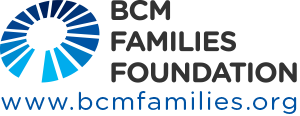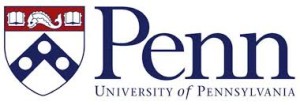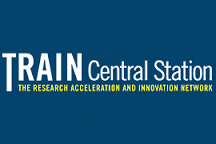BCM Families Foundation Collaborations
Public Notice:
It is a requirement and a policy of the BCM Families Foundation that no portion of the grants be charged with overhead and indirect costs of research institutions.
At the BCM Families Foundation 100% of donations are spent on our mission #Cure4BCM. 0% of donations are spent on staff salaries. Volunteers operate BCM Families Foundation. The Board of Directors are all unsalaried volunteers who donate both their time and money to the Foundation.
 BCM Families Foundation has numerous collaborations with universities involved in BCM gene therapy research and with biotechnology companies that are working on retinal eye disease. We selected and financed only those projects that could direct research not only toward the knowledge of the disease in itself but mainly towards the treatment or the cure of BCM. Projects are chosen as a part of an integrated and strategically designed plan.
BCM Families Foundation has numerous collaborations with universities involved in BCM gene therapy research and with biotechnology companies that are working on retinal eye disease. We selected and financed only those projects that could direct research not only toward the knowledge of the disease in itself but mainly towards the treatment or the cure of BCM. Projects are chosen as a part of an integrated and strategically designed plan.
Our main goal at the moment is to collect all the pre-clinical data required for submission to FDA (Food and Drug Administration) and EMA (European Medicines Agency) of an IND (Investigational New Drug) proposal for BCM gene therapy.
Finally, our organization has strategic contacts with biotechnology pharmaceutical companies and is approaching the translation process of the scientific results achieved up to now into a commercial drug.
- University of Pennsylvania – Dr. Samuel G. Jacobson, Dr. Arthur V. Cideciyan, Dr. Tomas Aleman.
- West Virginia University – Dr. Wen Tao Deng.
- University of Florida – Dr. William W. Hauswirth, Dr. Jijing Pang.
- University of Tuebingen, Germany – Dr. Bernd Wissinger, Dr. Susanne Kohl, Elena Buena-Atienza.
- Institute of Molecular and Clinical Ophthalmology Basel (IOB) – Dr. Mathias Quinodoz.
BCM Families Foundation Financed Projects toward gene therapy:
2010-2014 Private funds: $1,250,000 to start gene therapy projects at University of Pennsylvania and University of Florida.
2014-2024 BCM Families Foundation grants: $880,000 to University of Pennsylvania and University of Florida.
2023 – 2024 BCM Families Foundation grat: $130,888 to the West Virginia University.
2010-2024 Private funds + BCM Families Foundation grants: $400,000 to University of Tuebingen, Germany.
Main goal is to submit an Investigational New Drug application to FDA and EMA for a Phase I/Phase II gene therapy Human Clinical Trial.
University of Pennsylvania – USA

Dr. Tomas Aleman and Dr. Arthur V. Cideciyan
Since 2010 a collaboration started with University of Pennsylvania and with Dr. Samuel G. Jacobson team. The aim of this collaboration is to understand if gene therapy can be a treatment for Blue Cone Monochromacy. Positive results, never obtained before, show the presence of sufficient cone cells in the BCM patients to warrant gene therapy. These cells can be treated with gene therapy. Inclusion/exclusion criteria, and outcome measures are currently under investigations. The following publications were obtained through BCM Families Foundation’s support:
- Cideciyan AV, Hufnagel RB, Carroll J, Sumaroka A, Luo X, Schwartz SB, Dubra A, Land M, Michaelides M, Gardner JC, Hardcastle AJ, Moore AT, Sisk RA, Ahmed ZM, Kohl S, Wissinger B, Jacobson SG. Human cone visual pigment deletions spare sufficient photoreceptors to warrant gene therapy. Hum Gene Ther. 2013; 24: 993-1006.
- Luo X, Cideciyan AV, Iannaccone A, Roman AJ, Ditta LC, Jennings BJ, Yatsenko SA, Sheplock R, Sumaroka A, Swider M, Schwartz SB, Wissinger B, Kohl S, Jacobson SG. Blue cone monochromacy: visual function and efficacy outcome measures for clinical trials. PLoS One. 2015; 10: e0125700.
- Cideciyan AV, Roman AJ, Jacobson SG, Yan B, Pascolini M, Charng J, Pajaro S, Nirenberg S. Developing an outcome measure with high luminance for optogenetics treatment of severe retinal degenerations and for gene therapy of cone diseases. Invest Ophthalmol Vis Sci. 2016; 57: 3211-21.
- Sumaroka A, Garafalo AV, Cideciyan AV, Charng J, Roman AJ, Choi W, Saxena S, Aksianiuk V, Kohl S, Wissinger B, Jacobson SG. Blue cone monochromacy caused by the C203R missense mutation or large deletion mutations. Invest Ophthalmol Vis Sci. 2018 Dec 3;59(15):5762-72.
- Sumaroka A, Cideciyan AV, Sheplock R, Wu V, Kohl S, Wissinger B, Jacobson SG. Foveal therapy in blue cone monochromacy: predictions of visual potential from artificial intelligence. Front Neurosci. 2020 Aug 3;14:800.
- Semenov EP, Sheplock R, Roman AJ, McGuigan DB, Swider M, Cideciyan AV, Jacobson SG. Reading performance in blue cone monochromacy: defining an outcome measure for a clinical trial. Transl Vis Sci Technol. 2020 Dec 8;9(13):13.
- Mascio AA, Roman AJ, Cideciyan AV, Sheplock R, Wu V, Garafalo AV, Sumaroka A, Pirkle S, Kohl S, Wissinger B, Jacobson SG and Barbur JL. Color vision in blue cone monochromacy: outcome measures for a clinical trial Transl Vis Sci Techno 2023 Jan 3;12(1):25 DOI: 1167/tvst.12.1.25
University of Florida – USA
 Dr. William W. Hauswirth, Dr. Jijing Pang
Dr. William W. Hauswirth, Dr. Jijing Pang
Since 2010 and until 2020 a collaboration started with University of Florida. Initially (2010-2014) thanks to private funds and then as a part of a Sponsored Research Agreement with BCM Families Foundation, Dr. William Hauswirth developed, for the first time, an animal model of BCM and treated it with an AAV-based gene therapy. Superb positive results show the possibility to consider gene therapy as a treatment of BCM. Scientists are currently involved in testing different kind of vectors.
Zhang, Y; Deng, WT; Du, W; Zhu, P; Li, J; Xu, F; Sun, J; Gerstner, C D; Baehr, W; Boye Sanford, L; Zhao, C; Hauswirth, W W; Pang, J (2017). Gene-based Therapy in a Mouse Model of Blue Cone Monochromacy. Scientific Reports. 2017 7 (6690).
University Hospital Tübingen – Germany

Dr. Bernd Wissinger, Dr. Susanne Kohl
Since 2010 a collaboration started with the aim to identify all possible BCM causative mutations. Patients without a genetic confirmation of their disease have been invited to test their DNA. Main objectives of the project are:
- Development of sensitive and reliable methods for the detection of mutations and structural aberrations in the opsin gene cluster;
- Development and maintenance of Standardized Operation Procedures for the genetic testing for BCM;
- Reference center for the no-cost genetic testing program of clinically diagnosed BCM patients;
- Provision of reference material for quality control in genetic testing for BCM;
- Determination of mutation origin and new mutation rates in the opsin gene cluster.
Wissinger Lab website The following publication was obtained through our support:
Elena Buena-Atienza et al. De novo intrachromosomal gene conversion from OPN1MW to OPN1LW in the male germline results in Blue Cone Monochromacy www.nature.com SCIENTIFIC REPORTS 6:28253 DOI: 10.1038/srep28253.
Greenwood Genetic Center (GGC) is recognized nationally and internationally as a leader in clinical genetics, genetic education, diagnostic testing and genetic research. BCM Families Foundation is collaborating with Charles E. Schwartz, Ph.D., Director of Research at GGC, so potential BCM patients will be referred to Wissinger Laboratory (University of Tuebingen, Germany) for free genetic testing that yields an accurate diagnosis. A strength of BCM Families Foundation’s collaboration is GGC’s networking with other geneticists to raise awareness of BCM as an under-identified condition, as well as to more accurately determine the prevalence of BCM.
BCM Families Foundation – Participations in professional charity oversight organizations
TRAIN
TRAIN.Fastercures.org is the Research Acceleration and Innovation Network of FasterCures.org. The main concept is Venture Philanthropy that is a way to accelerate the process toward the translation of scientific research into commercial drugs. Patients associations are going to treat funding as an investment rather than as the traditional concept of a charitable grant, with corresponding expectations of return on investment, operating efficiencies, and management oversight. Return on investment may be financial (in the case of an investment in a for-profit company), to be reinvested in the foundation’s research agenda, but it is also, importantly, a social return on investment—the advancement of a promising therapy down the pipeline toward patients.
GUIDESTAR
BCM Families Foundation is a Silver Medallion member of GuideStar, which connects donors’grantmakers to non-profit organizations, plus provides potential funders better data for better decisions. GuideStar helps donors evaluate each member nonprofit by providing the nonprofit’s Form 990, by using its overhead ratio & by showing its improvement results year over year.
ORPHANET
BCM Families Foundation is a member of Orpha.net where we are listed in their directory of patient organizations for orphan/rare diseases.
NORD & EURORDIS

BCM Families Foundation is Platinum member of NORD the National Organization for Rare Disorders, rarediseases.org , and a member of EURORDIS, the European Organization for Rare Diseases, eurordis.org. Since 2014, BCM Families Foundation has participated in Rare Disease Day, developed by EURORDIS in 2008.


Friends Non-Profit Organizations
- Associazione Acromati Italiani onlus (AAI) – acromatops
 ia.it AAIand BCM Families Foundation are supporting together the Italian Network for the prevalence study of Blue Cone Monochromacy and Acromatopsia and the introduction of a driving licence with bioptic telescope in Italy.
ia.it AAIand BCM Families Foundation are supporting together the Italian Network for the prevalence study of Blue Cone Monochromacy and Acromatopsia and the introduction of a driving licence with bioptic telescope in Italy.  National Multiple Sclerosis Society
National Multiple Sclerosis Society Macula Vision Research Foundation
Macula Vision Research Foundation Achroma corp
Achroma corp Vision of Children Foundation
Vision of Children Foundation
Patient Registry project has been created in 2019 and has been supported in 2020 by funds of Otto per Mille della Chiesa Valdese.
For 2024 University of Pennsylvania Clinical Studies project is supported by funds of Konecta SpA received through Associazione Acromati Italiani onlus.
No-Cost genetic diagnosis project is supported in 2024 by funds of Konecta SpA received through Associazione Acromati Italiani onlus.






